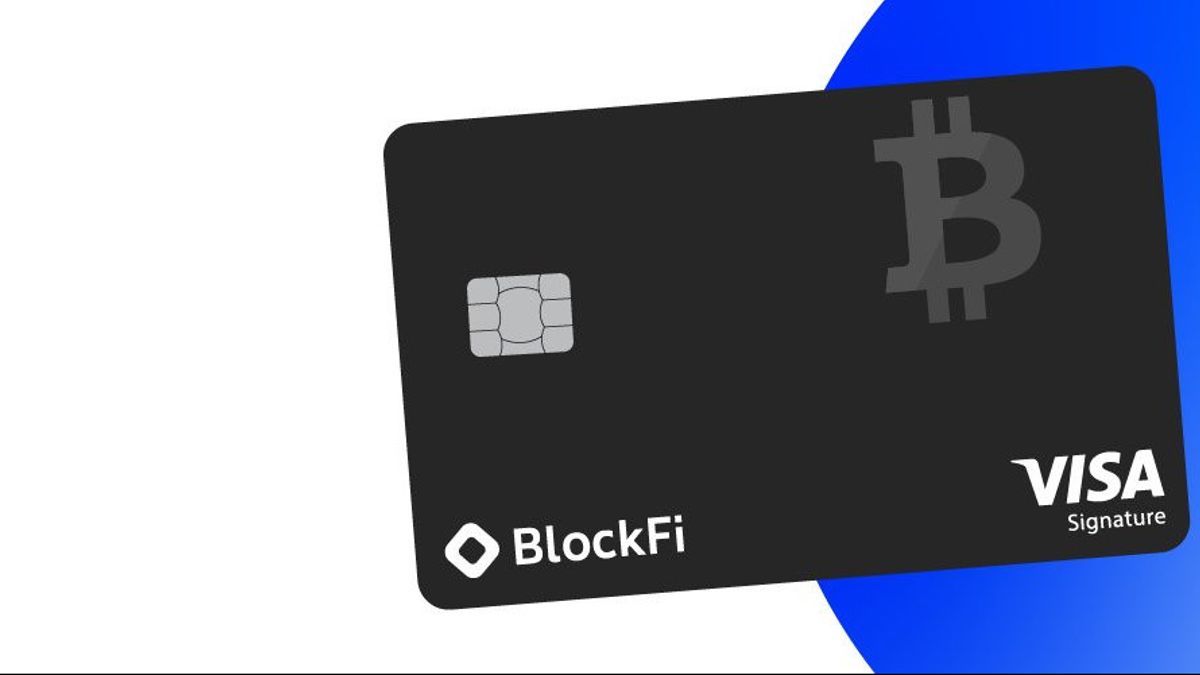JAKARTA – The crypto business has been hit hard again. Crypto-currency lender BlockFi has filed for Chapter 11 bankruptcy protection, as of Monday, November 28. They became the latest crypto victims after the company was hurt by the exposure of exchange FTX's spectacular collapse earlier this month.
The lawsuit in New Jersey court arose because of the plunging cryptocurrency prices. The price of bitcoin, the most popular digital currency so far, is down more than 70% from its 2021 peak.
“BlockFi's Chapter 11 restructuring underscores the significant asset transmission risks associated with the crypto ecosystem,” said Monsur Hussain, Senior Director at Fitch Ratings, in a statement.
New Jersey-based BlockFi, was founded by fintech executive turned crypto entrepreneur Zac Prince. He said in his bankruptcy filing that his substantial exposure to FTX created a liquidity crisis.
SEE ALSO:
FTX, founded by Sam Bankman-Fried, filed for protection in the United States in early November after traders withdrew $6 billion from the platform in three days and rival crypto exchange Binance also canceled a rescue deal.
"While debtors' exposure to FTX is a major cause of these bankruptcy filings, debtors do not face many of the problems that FTX appears to face," Mark Renzi, managing director at Berkeley Research Group, said in a financial report.
BlockFi said the liquidity crunch was caused by its exposure to FTX via loans to Alameda, a crypto trading company affiliated with FTX, as well as cryptocurrencies stored on FTX's platforms stuck there. BlockFi lists its assets and liabilities between 1 billion and 10 billion US dollars.
Renzi said that BlockFi had sold some of its crypto assets in early November to fund its bankruptcy. The sale brought in $238.6 million in cash, and BlockFi now has $256.5 million in cash.
In a court filing on Monday, November 28, BlockFi listed FTX as the second-largest lender, with $275 million in outstanding loans owed earlier this year. They say they owe money to more than 100,000 creditors. The company also said in a separate filing that it plans to lay off two-thirds of its 292 employees.
Under the deal signed with FTX last July, BlockFi will receive a revolving credit facility worth US$400 million while FTX has the option to buy it for up to US$240 million.
BlockFi's bankruptcy filing also comes after BlockFi's two biggest competitors, Celsius Network and Voyager Digital, filed for bankruptcy in July citing extreme market conditions that resulted in losses for both companies.
Crypto lenders, the crypto world's de facto banks, thrived during the pandemic, attracting retail customers at double-digit rates in return for their cryptocurrency deposits.
Crypto lenders are not required to hold capital or buffer liquidity like traditional lenders and some find themselves exposed when a shortage of collateral forces them, and their customers, to incur huge losses.
BlockFi's first bankruptcy hearing is scheduled to take place on Tuesday, November 29. FTX did not respond to requests for comment from the media on the report.
BlockFi's biggest creditor is Ankura Trust, a company that represents creditors in stressful situations, and is $729 million in debt. Then Valar Ventures, a venture capital fund linked to Peter Thiel, owns a 19% equity stake in BlockFi.
BlockFi also lists the US Securities and Exchange Commission as one of its largest creditors, with a claim of US$30 million. In February, a BlockFi subsidiary agreed to pay $100 million to the SEC and 32 states to settle fees in connection with a retail crypto lending product that the company is offering to nearly 600,000 investors.
Bain Capital Ventures and Tiger Global will also co-lead BlockFi's March 2021 funding round, according to a press release issued by BlockFi at the time. Neither company immediately responded to a request for comment.
In a blog post, BlockFi said a Chapter 11 bankruptcy filing would allow the company to stabilize its business and maximize value for all stakeholders.
"Acting in the best interests of our clients is our top priority and continues to guide our path forward," said BlockFi.
In its bankruptcy filing, BlockFi said it had hired Kirkland & Ellis and Haynes & Boone as bankruptcy advisors. BlockFi has also previously stopped withdrawing funds from its platform.
In the filing, Renzi said that Blockfi intends to ask authorities to honor client withdrawal requests from its customers' wallet accounts, where crypto assets are stored. However, the company did not disclose its plans for how to handle requests for withdrawals from other products, including interest-bearing accounts.
"BlockFi clients can eventually recover a large portion of their investment," Renzi said in the filing.
BlockFi was founded in 2017 by Prince, who is currently the company's CEO, and Flori Marquez. Although headquartered in New Jersey, BlockFi also has offices in New York, Singapore, Poland and Argentina.
In July, Prince tweeted that "it's time to stop putting BlockFi in the same bucket/sentence as Voyager and Celsius."
"Two months ago we looked 'same'. They closed and had an impending loss for their clients," he said.
According to a BlockFi profile published earlier this year by Inc., Prince grew up in San Antonio, Texas, and paid for his college education at the University of Oklahoma and Texas State University with winnings from online poker tournaments. Prior to starting BlockFi with Marquez, he worked at Orchard Platform, as a broker-dealer, and at Zibby, the lending institution now called Katapult.
Marquez previously worked at Bond Street, a small business lending firm that merged with Goldman Sachs in 2017, according to Inc.
The English, Chinese, Japanese, Arabic, and French versions are automatically generated by the AI. So there may still be inaccuracies in translating, please always see Indonesian as our main language. (system supported by DigitalSiber.id)

















